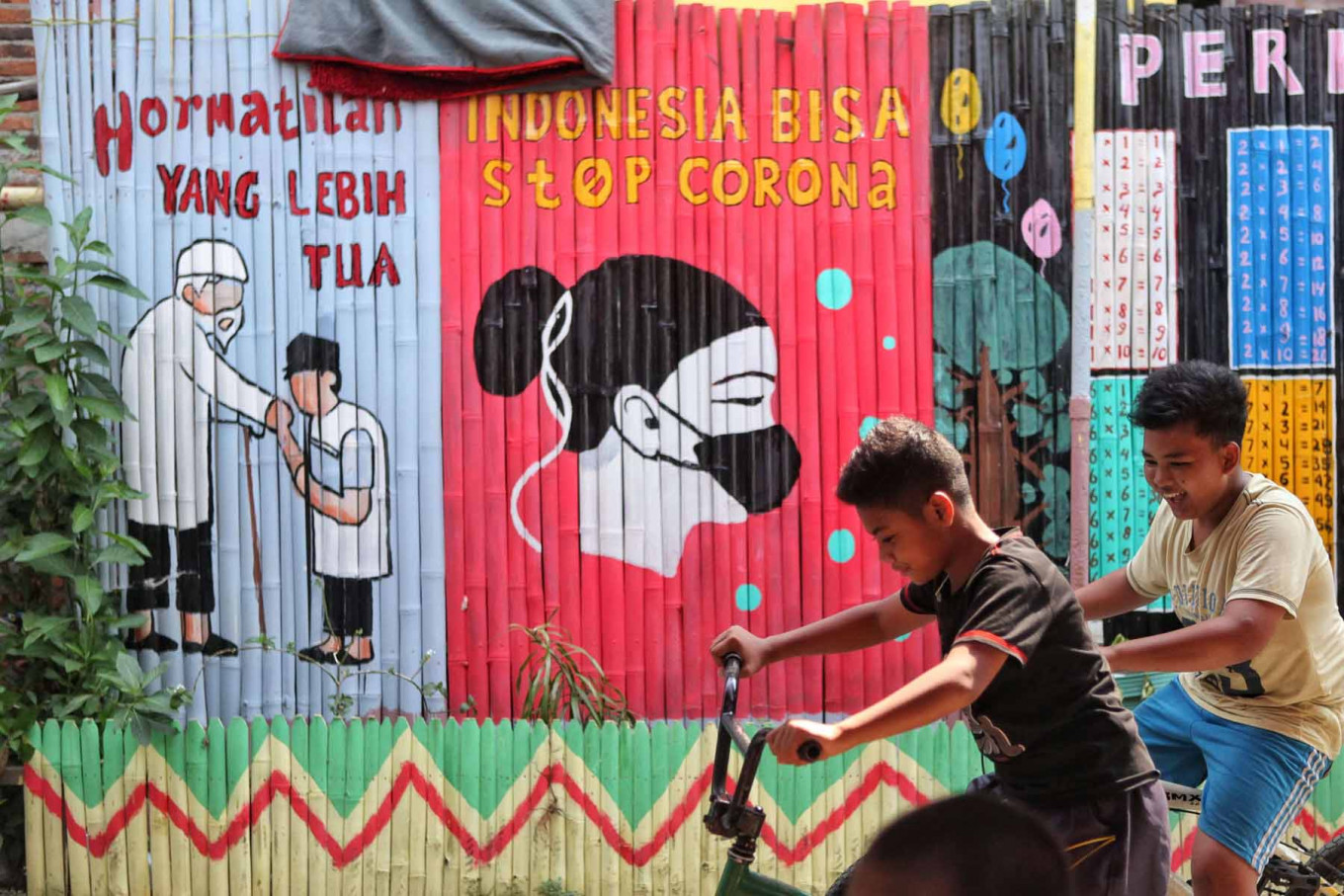Popular Reads
Top Results
Can't find what you're looking for?
View all search resultsPopular Reads
Top Results
Can't find what you're looking for?
View all search resultsIndonesia should include youths as priority in COVID-19 relief actions, UNICEF says
There were some 66 million youngsters aged 10 to 24 years old, making up roughly 25 percent of Indonesia's population, UNICEF noted.
Change text size
Gift Premium Articles
to Anyone
Indonesia should include youths as one of the priorities in COVID-19 relief efforts, since it is the younger generation who will bear the brunt of the long-term socioeconomic impacts of the pandemic, the United Nations Children’s Fund (UNICEF) says.
There were some 66 million youngsters aged 10 to 24 years old, making up roughly 25 percent of Indonesia's population, UNICEF noted, adding that this generation also suffered during the COVID-19 pandemic as most schools remained closed and many of them also faced the risk of dropping out as families struggled with the economic impact of the health crisis.
“Since the beginning of the COVID-19 pandemic, many have been saying that senior citizens are the most affected by the virus,” UNICEF communications chief Thiery Delvigne-Jean said in a recent statement received by The Jakarta Post.
Read also: Millennials stay resilient in difficult times
“However, the youth have been hit hard by COVID-19 in many things: they are unable to go to school and they see their parents losing their jobs or falling ill,” he said, adding that the youth will also have to brace themselves against the long-term impact on the economy, which could affect their opportunity to find a job in the future.
When a parent loses their earnings due to the health crisis, it does not only affect the household finances, but also puts pressure on other family members. This could increase the risk of children witnessing or being subjected to abuse in the family, UNICEF noted.
In a survey conducted by UNICEF in early May, one out of 10 teenagers in the country had experienced abuse at home.
The survey, which involved 33,000 teenagers across 34 provinces in Indonesia, also revealed that 57 percent of respondents faced financial difficulties because their parents had been affected by the pandemic.
Moreover, 62 percent of students who attended online classes stated that they need help with internet access as well as teacher’s guidance to navigate the online learning system if the pandemic continues.
Read also: ‘Everything seems uncertain’: How teenagers navigate while life stuck at home
To overcome this situation, UNICEF suggested the government invest more in education to ensure that students who have been affected by the pandemic are able to catch up with their studies.
“Mental health and social support should be a priority as well. Upon formulating a COVID-19 action plan, the government should calculate specific risks from young girls as well as other children from vulnerable groups, including those who have to face stigma and discrimination,” Delvigne-Jean said.










